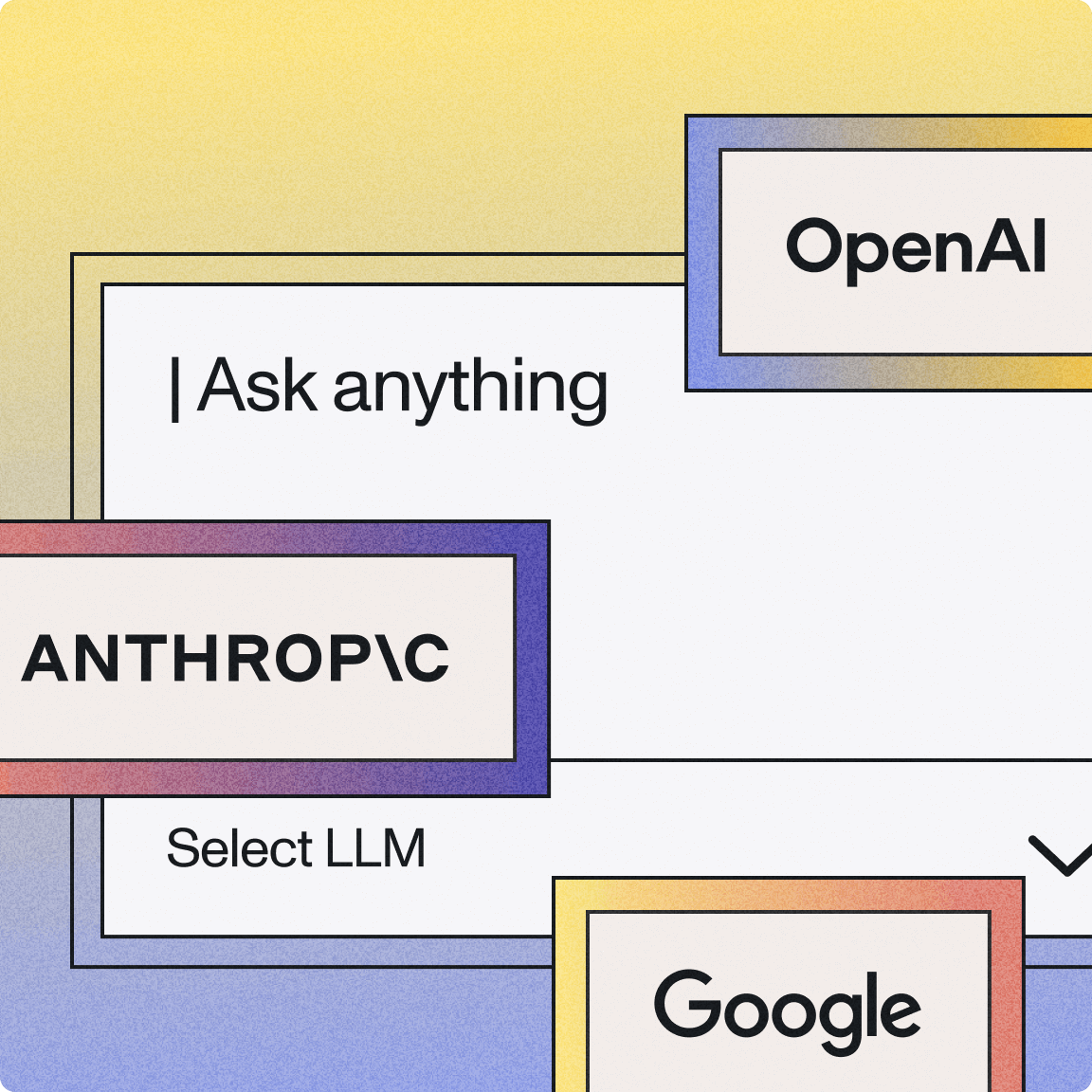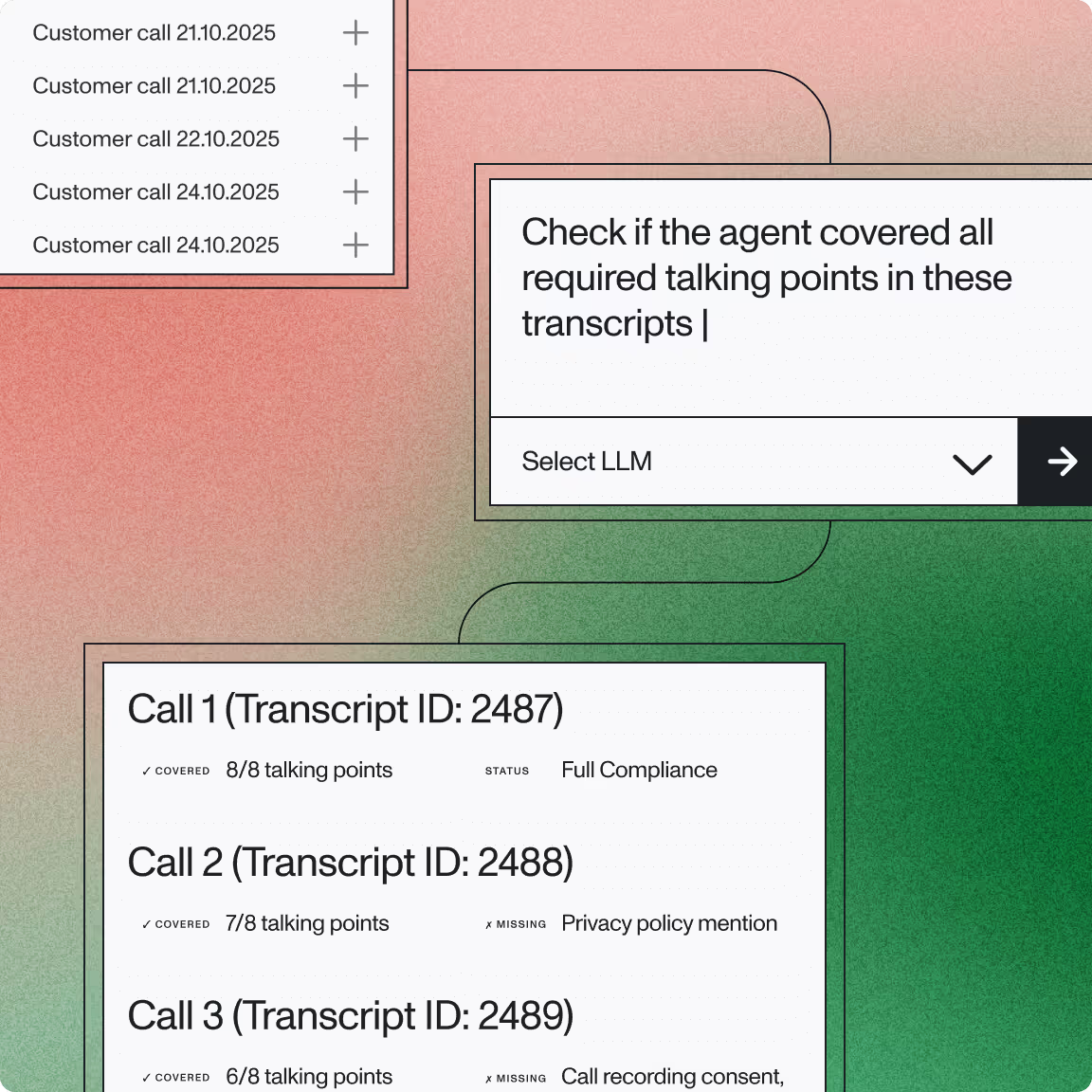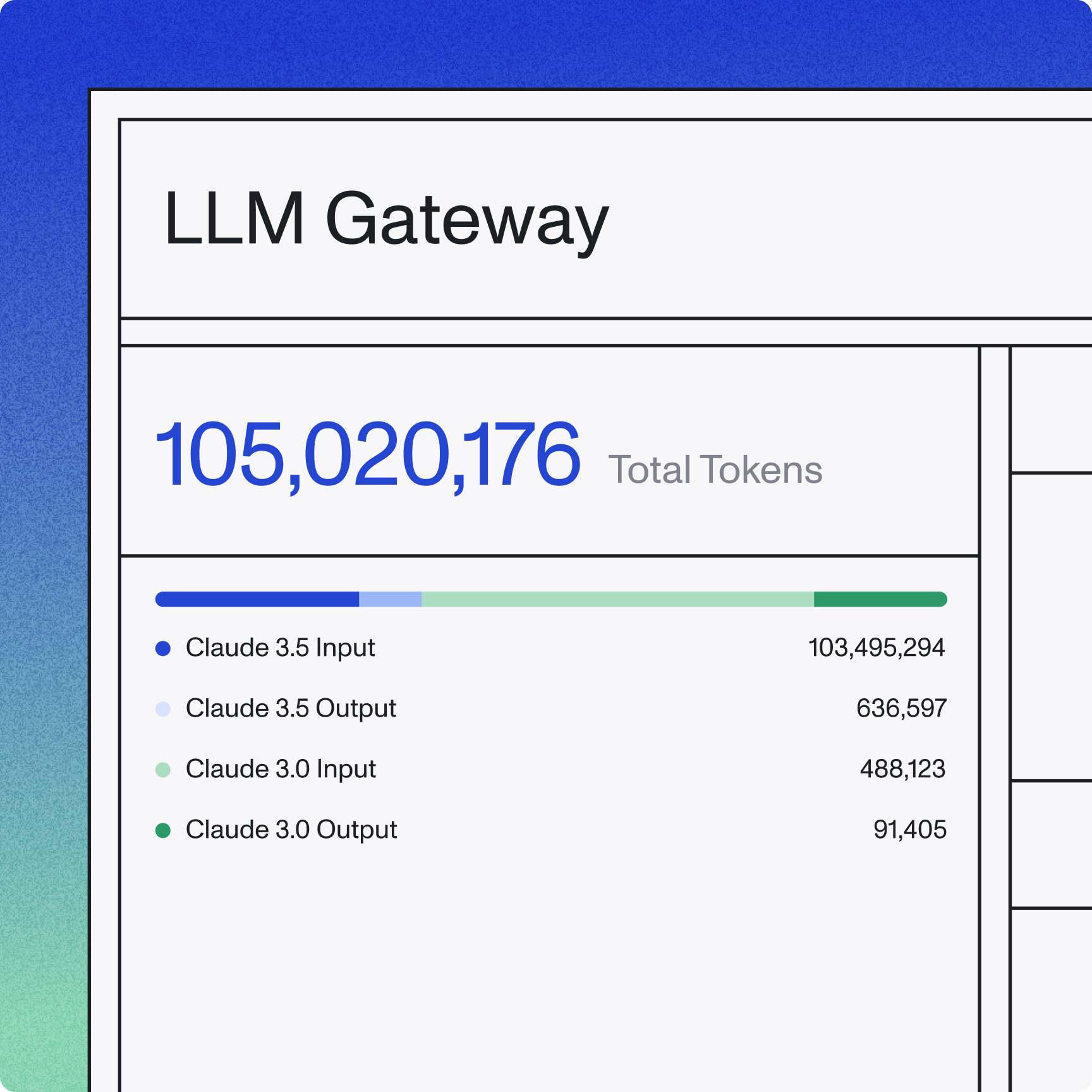LLM Gateway
Connect your speech-to-text outputs directly to leading LLM providers through a single, unified API.

Leverage your preferred LLM to take meaningful action on your audio data
Injury: Runner's knee
Symptoms: Pain behind or around the kneecap, Pain when walking
Sprained ankle
Injury: Sprained ankle
Symptoms: Pain and difficulty moving the ankle, Swelling around the ankle, Bruising
Meniscus tear
Injury: Meniscus tear
Symptoms: Stiffness and swelling, Pain in your knee, Catching or locking of your knee
Rotator cuff tear
Injury: Rotator cuff tear
Symptoms: Pain when lifting and lowering your arm, Weakness when lifting or rotating your arm, Pain when lying on the affected shoulder
ACL tear
Injury: ACL tear
Symptoms: Severe pain and tenderness in knee, Loss of full range of motion, Swelling around the knee
Participating in sports and physical activity comes with the risk of injury. Some of the most common sports injuries include runner's knee, sprained ankles, meniscus tears, rotator cuff tears, and ACL tears. Being aware of the causes, symptoms, and treatments for these injuries can help athletes prevent and recover from them.
Runner's Knee
Runner's knee, also known as patellofemoral pain syndrome, is characterized by pain behind or around the kneecap. It is often caused by overuse, muscle imbalance, and inadequate stretching. Symptoms include pain under or around the kneecap, especially when walking. Treatment focuses on rest, icing the knee, strengthening exercises, stretching, and modifying training.
Sprained Ankle
A sprained ankle happens when the ankle rolls, twists, or turns beyond its normal range of motion, which can tear the ligaments. Symptoms include pain, swelling, and bruising around the ankle. Treatment includes resting the ankle, icing it, compressing it, and elevating it to reduce swelling. Physical therapy exercises can help strengthen the ankle and prevent future sprains.
Meniscus Tear
The meniscus is a piece of cartilage that cushions the knee joint. A meniscus tear occurs when the knee is forcibly twisted, often when bearing full body weight. Symptoms include knee stiffness, swelling, pain, and locking. Minor tears may heal with rest and physical therapy. More severe tears require surgical repair.
Rotator Cuff Tear
The rotator cuff is a group of muscles and tendons that stabilize the shoulder joint. Rotator cuff tears can occur from falls, lifting heavy objects, or overuse. Symptoms include shoulder pain and weakness when lifting or rotating the arm. Rest, pain relief, steroid injections, and physical therapy can help minor tears. Major tears may require surgery.
ACL Tear
The ACL provides stability to the knee joint. It can tear when the knee is forced to suddenly change direction or slow down quickly. Symptoms include severe knee pain, swelling, and loss of full range of motion. Minor tears may heal with bracing and physical therapy. Complete tears require reconstructive surgery to restore knee stability.
Being aware of common sports injuries and their treatments can help athletes stay active while reducing injury risk. Rest, icing, compression, elevation, medication, bracing, physical therapy, and surgery are all options to help the body heal.
Go from raw voice data to crisp transcripts and valuable insights in one single platform
Route transcripts to GPT, Claude, Gemini, and open-source LLMs. Integrate custom prompts. Manage everything from one dashboard.
One API, every LLM provider
Extract insights and ask questions from multiple LLM providers accessible from a single API.
- Connect to OpenAI, Anthropic, Google, and other LLM providers
- Switch between models instantly without rewriting code
- Run side-by-side comparisons to optimize performance


Built for Voice AI workflows
Native support for transcript structure and context.
- Apply prompts directly to transcripts with speaker labels and timestamps
- Preserve speech-specific context that generic LLM APIs often lose
- Optimize for transcript structure, not generic text inputs
Unified management, simplified billing, and no vendor juggling
Simplify operations across your entire Voice AI stack.
- Unified billing and usage tracking across all LLM providers
- Test complete pipelines from audio input to LLM output in one environment
- Eliminate vendor juggling and consolidate your toolchain

Rapidly ship high-quality Generative AI features with voice data
Unify your Voice AI tech stack
LLM Gateway connects transcripts directly to any LLM provider through a single API. Route requests, test models, and switch providers seamlessly—all from one platform.
Go from audio to insights without moving between tools
LLM Gateway handles prompt construction for speech data automatically, preserving speaker labels, timestamps, and conversation structure when routing to downstream providers.
Get access to the latest models right away
LLM Gateway adds support for new models and capabilities as soon as they're released, so you can build on the latest advances in AI without needing to make any backend updates.
Launch quickly & scale effortlessly
Unified billing and usage tracking across all providers simplifies operations as you scale. Find the right model faster and ship production features with confidence.
Turn voice data into unparalleled product experiences
Partner with the leader in Speech AI to build powerful products with breakthrough industry impact.





























